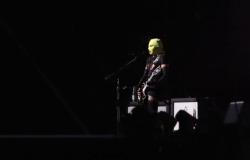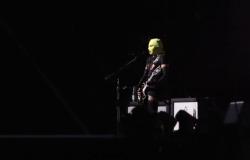The president Luiz Inácio Lula da Silva puts your government’s economic policy and re-election itself at risk when it offends basic economic rules. Lula criticized the primary surplus policybut he was one of the main beneficiaries of the rule – which is part of the so-called macroeconomic tripod – during his first two terms.
With public accounts under control, inflation fell, the real appreciated and the Central Bank was able to reduce the Selic rate from 26.5% per year in 2003 to 10.75% in 2010. This was crucial for growth of the economy in his two governments, and so that he could, with ease, elect his successor, his former minister Dilma Rousseff, who had never contested a majority election.
During breakfast with journalists this Tuesday morning, Lula 23, said that the “only thing that looks like an investment is the primary surplus”. She questioned why spending on health and education did not receive this classification, as well as loans to low-income families. The president, in fact, mixes concepts.
At a breakfast with journalists at Palácio do Planalto, Lula criticized the surplus policy and attacked Campos Neto again. Photograph: Wilton Júnior/Estadão
For the purposes of impact on public debt, all government actions are considered expenses, initially, including investments. These expenses put pressure on debt, as well as inflation, as there is an increase in demand for goods and services. Subsequently, only if there is a good allocation of these resources will there be an increase in productivity, the main objective of any investment.
The president is right when he says that social spending broke a record during his government, and is a reason for praise. In fact, removing Brazilians from the poverty line has a disruptive capacity in the medium and long term, with an increase in qualified labor – whether for parents, but mainly for children, if they have access to good education policies.
The mistake is not understanding that this needs to be done with public accounts under control, so that these policies are perennial and have a long life. This is precisely why it is necessary not only to cut, but also to review and optimize expenses. This should be an obsession of your government, so that resources are directed to those who need it most.
Lula also turned his heat to the Central Bank, in yet another act of inelegance against the president Roberto Campos Neto. He said that “Anyone who has lived with him for a year and four months has no problem living for another six months”. Speech poses two problems.
First, it never hurts to remember that Campos Neto raised interest rates drastically in 2022, on the eve of the elections, and this helped to contain the electoral tax measures promoted by then president Jair Bolsonaro. BC’s role was technical that year, and it remains technical now. It responds to current inflation pressures, the international scenario, and inflation expectations.
Secondly, because Lula downgrades the role of the next president of the Central Bank, who will still be appointed by him. The speech reveals that he understands that he can pressure or influence the country’s monetary policy. If there is an understanding that this will actually happen, there will be an increase in future interest rates and the real will tend to depreciate. His government will be the main loser.
Lula also compared the Brazilian government’s gross debt with that of other countries, mainly developed ones, such as Italy, Spain and France. These countries are part of the eurozone, which has a single monetary policy, and benefit mainly from Germany’s austerity policies. This allows interest rates to stay low, and the debt of these countries to be cheaper to roll over in the market. This is not the case in Brazil.
As Campos Neto warned at an event this week, the growth in debt in developed countries is indeed a problem – and this will be seen more rigorously by the markets. Brazil does not need to dwell on what is bad abroad.
With the country polarized and increasingly clinging to customs, Lula cannot make mistakes in the economy, if he wants to be re-elected. He has already followed the right path, in his first term, and witnessed the tragedy that was the Dilma Rousseff government in the area.
There is time to fine-tune the speech, but will anyone around the president have the courage to say this to him?
Tags: cutting spending Lula mixes concepts puts economic policy reelection risk
--





